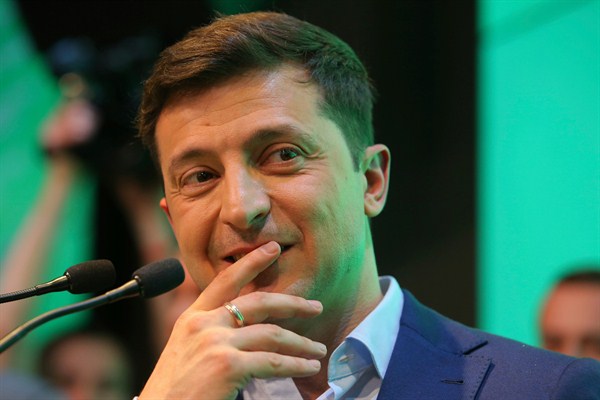Ukraine’s hybrid conflict with Russia over the past five years has not just unfolded in annexed Crimea and the regions of eastern Ukraine where Russia continues to back separatist groups. It has also been felt in Kiev and across the rest of the county, as Russian interference continues to destabilize Ukrainian politics.
In an effort to defend against Russian disinformation and propaganda, Ukraine’s government has responded with measures that have led to a substantial erosion of digital freedoms for journalists, activists and the wider Ukrainian public. A country once heralded as one of the most progressive in Eastern Europe for digital rights, Ukraine is now actively restricting them.
Much of this is the legacy of President Petro Poroshenko. Will the landslide victory of Volodymyr Zelensky in Ukraine’s presidential election Sunday lead to a reversal?

